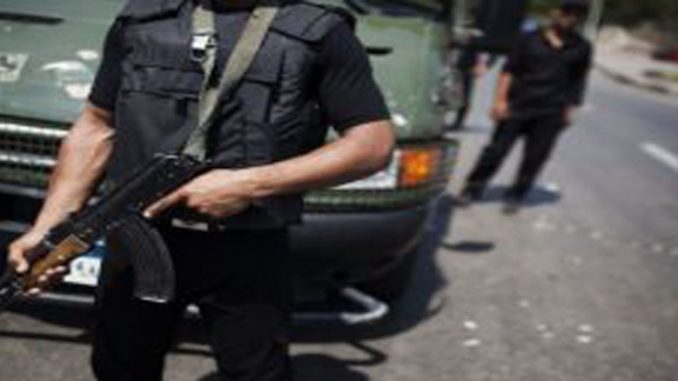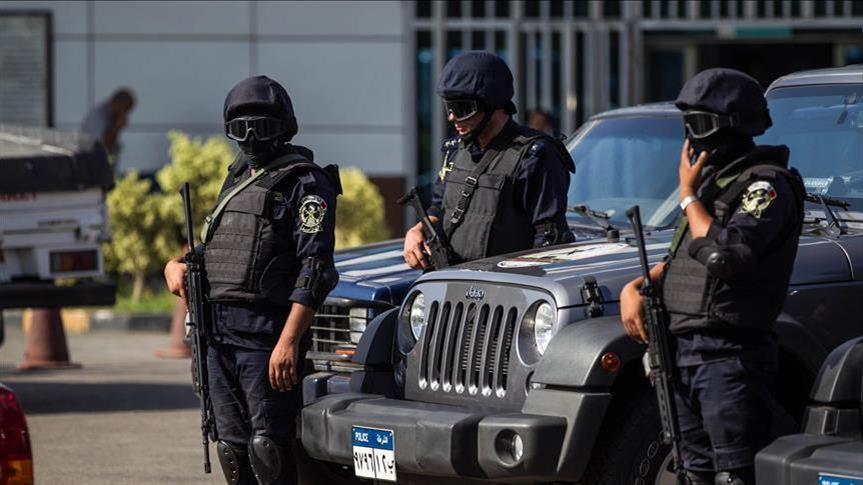
The Egyptian regime has been subjecting its opponents to enforced disappearance and extrajudicial killing since Abdel-Fattah Al-Sisi led a military coup against Egypt’s first democratically elected president Mohamed Morsi in 2013.
The Egyptian Coordination for Rights and Freedoms ECRF, a non governmental rights group, released a report on enforced disappearance covering the period from the beginning of January 2016 to the end of June. The Egyptian rights group said that it documented 1000 enforced disappearances cases in the first half of 2016, at a rate of 5 cases per day, according to Al-Khlaeejonline. “The brutal killing of Giulio Regeni shocked the world but has also turned the spotlight on the method of enforced disappearances practiced systematically in Egypt today,”said the ECRF.
“Enforced disappearance has become a key instrument of state policy in Egypt,” said Amnesty’s Middle East and North Africa director Philip Luther. “Anyone who dares to speak out is at risk, with counter-terrorism being used as an excuse to abduct, interrogate and torture people who challenge the authorities.
Extrajudicial killings
In a report by Human Rights Watch on extrajudicial killings in Sinai, the rights group says “security forces may have extrajudicially executed at least four and perhaps as many as 10 men in January 2017. They may have arbitrarily detained and forcibly disappeared the men and then staged a counter terrorism raid to cover up the killings.”
Deputy Middle East and North Africa director at Human Rights Watch Joe Stork said, “These apparent extrajudicial killings reveal total impunity for Egypt’s security forces in the Sinai Peninsula under Abdel Fattah al-Sisi’s counter-terrorism policies.” According to HRW report, the killings appear to fit a pattern of abuses against civilians by both military and internal security forces.
Egyptian police kill 8 forcibly disappeared youths, claim they were killed in clashes
The Egyptian Interior Ministry said on Sunday, 23 July, that the security forces killed eight suspected militants, claiming that they were training on arms in a southern desert region.
However, there is a different story on this. One of those who were extra-judicially killed by the Egyptian security forces, Omar Adel Mohammed Abdel Baqi, was forcibly disappeared since 13 July. Here is the complete story:
Omar Abdel Baqi was forcibly disappeared before he was extra-judicially killed
– On 13 July, the Egyptian security forces arrested Omar Adel Mohammed Abdel Baqi and a group of his friends.
– On 14 July, Umar’s family announced that he was detained but was forcibly disappeared, where his whereabouts was not known, according to a member of the family.
– On July 15 on the second day of his arrest, Al-Bawaba news website, which is close to the security services, said that Umar was arrested by the Egyptian security forces.
– On July 23, after ten days of his arrest, the Egyptian Interior Ministry announced that the security forces killed eight youths, including Omar Adel Mohamed Abdel Baqi, claiming that they were killed in an armed clash, even though they were detained and forcibly disappeared.
Another story of extrajudicial killing of 10 forcibly disappeared youths
Egyptian police said in January they killed 10 “gunmen” in North Sinai, but a former MP, and a rights activist said the slain citizens were forcibly disappeared. According to a statement released by the Egyptian ministry of interior, Egyptian forces were able to raid the gunmen’s hiding place, which caused clashes to erupt between the Egyptian forces and gunmen.
Former MP and rights activist deny the Interior Ministry’s statement
– Yahya Aqeel, a former Member of the Egyptian Parliament, denied the official story narrated by Egypt’s Interior Ministry which claimed that security forces killed ten “gunmen”, describing the slain persons as “terrorists”, and accusing them of killing army soldiers and a police officer. Citizens from Sinai also said that the official Interior Ministry statement came contrary to what was confirmed by the people of El Arish close to the ten dead persons, who emphasized that the ten slain people were liquidated after being arrested and that “the claim that they are terrorists is void.”
Aqeel wrote on his Facebook account, saying that “The liquidation of ten students in El Arish, putting a gun next to each one, claiming that they were terrorists, and promoting this narrative in the pro-coup media… and then how to ask for calm and stability in the Sinai Peninsula? … The people of El Arish want an explanation for this incident .. The slain young people were, reportedly, detained about a month ago.”
Later, Aqeel said in a tweet that some of those who were liquidated were forcibly disappeared for six months, saying: “Ali Abdul Ati, Ahmed Yousef, …Ayoub’s and others were forcibly disappeared for more than 6 months …but surprisingly, the official narrative claimed that they were resisting the authorities in the students’ apartment!”
– Haitham Ghoneim, a researcher and human rights activist, criticized the Egyptian Ministry narrative, saying that it was a “cheap cinema movie” and added that the interior ministry for the first time captured such a video without regard to the families of the young people and the cycle of bloodshed … The victims had been detained [in the interior ministry’s detention camps].
Ghoneim said in a video he posted on his Facebook account that “The Interior announced in a statement that it was able to kill 10 young Egyptians, stating that young people had killed many army recruits as well as a police officer.” He added that it is the first time that the interior ministry captures video scenes of a physical liquidation of young people who had been forcibly disappeared. Everyone knew that all the ten young people announced by the interior ministry statement had been forcibly disappeared for periods ranging between one month and more.”



